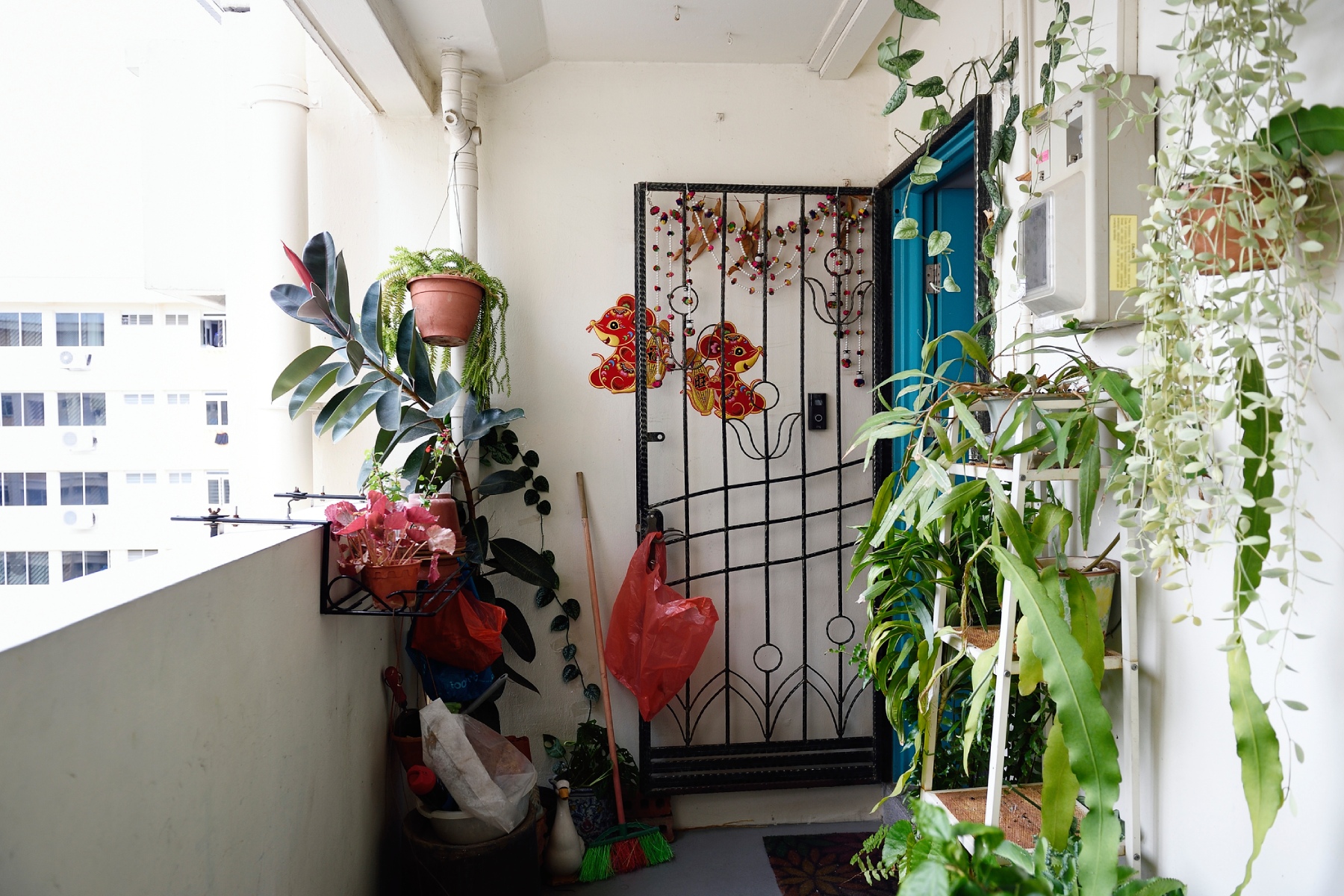As a newcomer to Singapore, you would want to get a local SIM card and set up your mobile phone quickly to keep in contact with family abroad and new friends and colleagues.
Once you’ve chosen a mobile network from the numerous providers, you can select the type of phone contract that best suits your needs.
Learn how Singapore’s mobile phone system and SIM cards work by exploring the following topics:
- The mobile network in Singapore
- Can you use your own mobile phone and SIM card in Singapore?
- Mobile phones in Singapore
- The leading mobile phone operators in Singapore
- Pre-paid SIM card or mobile phone contract?
- What are Singapore’s mobile phone numbers?
- Where can you repair a mobile phone in Singapore?
- Singapore’s mobile phone laws
- Making a complaint about a mobile phone provider
- Without a mobile phone and SIM card in Singapore?
- Useful resources
The mobile network in Singapore
The Singapore SIM card and mobile network operate nationwide, ensuring full connectivity from anywhere. Mobile networks operate on one of two systems: the Global System for Mobile Communications (GSM) and Code Division Multiple Access (CDMA).

However, Singapore only uses the GSM network, aligning with most other parts of the world.
Singapore’s GSM network currently uses 3G, 4G, and 5G connectivity. However, the city-state is phasing out its 3G services with a deadline of July 2024.
Wi-Fi connection
Singapore has an internet penetration rate of 92%; Wi-Fi connectivity is widespread across the island, with hotspots in museums, malls, stores, cafés, and MRT (subway) stations.
In addition, Wireless@SGx is a country-wide Wi-Fi service available to all users. Simply download the app and set it up on your smartphone. It will automatically connect to the closest Wireless@SGx hotspot.
You can also enjoy a lightning-fast Wi-Fi connection because, at 242.01Mbps, Singapore has one of the fastest internet speeds in the world, putting it well ahead of places like the United Arab Emirates (UAE), China, the United States (US), and Denmark.
Can you use your own mobile phone and SIM card in Singapore?
It would make sense for short-term visitors or tourists using international roaming on their existing plan. However, expats who have relocated would be better off exploring prepaid and postpaid Singapore SIM card options.
Suppose you want to use your existing phone while in the country; there are several things you should do before arriving in Singapore, including:
- Check whether your phone works on the GSM networks
- Explore the roaming options; most providers offer international roaming packages for a set price, though some may be data only while others include a fuller range of services
- Unlock your phone, if necessary (you may need to contact your service provider to arrange it)
Mobile phones in Singapore
According to the latest Department of Singapore Statistics data, Singaporeans are very well-connected, with many residents owning more than one phone. Of the many mobile phone users, some 5.57 million use smartphones, which is set to reach over 6.16 million by 2028.
Smartphones
Tech behemoth Apple still dominates the market with a share of just over 33%, with the Apple iPhone being the single most popular smartphone on the island, followed by Samsung (19.33%), Xiaomi (3.82%), Huawei (2.54%), and others (e.g., Oppo, Vivo, Realme, Google, and OnePlus)
If you plan to buy a smartphone in Singapore, you have a few options. For instance, it will be included If you sign up for a two-year, non-SIM-only plan. Alternatively, you can buy the handset outright from your provider or the manufacturing brand.

For example, if you buy the iPhone 14 directly from Apple, the cost would be a minimum of SG$1311.10 (this increases based on capacity). Similarly, the Galaxy Z Flip3 from Samsung is SG$1,310.
However, it is also possible to buy secondhand smartphones – usually older models – at the many smaller tech stores in local Singaporean neighborhoods or online. For example, a used Galaxy Z Flip3 is available on Carousell from SG$427.
The leading mobile phone operators in Singapore
After the Singapore government deregulated the telecommunications industry, a few major mobile operators came into existence as publicly listed companies, including:
M1 is the telecommunications division of Singapore’s Keppel Corporation and a joint venture with Singapore Press Holdings, the country’s major media organization.
Singtel is a major Singaporean telecommunications conglomerate and the country’s largest mobile network operator.
StarHub is another big telco provider listed on the Singapore Exchange with almost 26% local mobile revenue market share.
These all offer a full range of high-quality mobile services, including phone contracts, and prepaid or postpaid Singapore SIM cards, but it might get pricey.
Conversely, several Mobile Virtual Network Operators (MVNO) offer Singapore SIM cards and mobile contracts at lower prices. For example, MyRepublic has several SIM-only plans requiring no contract and unlimited data. As it uses the StarHub 5G network and M1’s 4G network, you will have good coverage.
Comparing mobile phone operators
There are several things to consider when comparing Singapore SIM card and mobile phone providers, including:
- Do they offer prepaid and postpaid plans that will suit your needs best?
- Do you have to buy a phone from them, or can you get a SIM card only?
- What inclusions do their different plans offer?
- Do plans include roaming, or is that an extra cost?
- What is the network coverage like in Singapore and overseas?
- Does the company have a good reputation for providing high-quality service?
- What type of network does the carrier use?
- Does the company offer family plans?
- What happens if you need to switch providers or exit your plan early?
For a thorough comparison analysis, you can use MoneySmart.
Pre-paid SIM card or mobile phone contract?
Postpaid plans are more popular, with nearly seven million 4G contracts compared to two million prepaid mobile phone users in Singapore. Still, depending on your needs, you’ll have many options.
Here are a few things to consider when choosing between prepaid and postpaid mobile phone plans:
- Price: Prepaid plans are sometimes cheaper, though not always
- Length of plan: Postpaid contracts often require a time commitment of at least 12 months; prepaid plans give the flexibility to opt out at any time
- Inclusions: You will usually have more inclusions and benefits with a postpaid plan
- Service quality: Prepaid plans often come with the caveats of throttling and deprioritization

Mobile throttling happens when you’ve reached your monthly data cap, and deprioritization is when your wireless network gives other users preference. Both will slow down your data speed.
Prepaid SIM cards will be sufficient if you are only in Singapore for a short time or often travel to and from the country. It is easy to keep the same card, which you can top up when you visit. However, postpaid plans would be more beneficial and economical for expats who plan to live in Singapore for a year or longer.
Prepaid SIM cards in Singapore
Anyone can buy prepaid Singapore SIM cards, widely available across the country, for example:
- At the mobile phone kiosks at Changi Airport
- Pre-order a SIM card so you can pick it up upon arrival
- Directly from mobile service providers and convenience stores
You need to present your passport or other form of ID and register the card. If your phone is unlocked, you can simply pop the SIM in, and you’ll be connected.
Pricing for prepaid Singapore SIM cards can vary depending on the inclusions. Generally, these will have a specific amount of credit for phone calls, messages, and data. The more expensive ones will also include some international roaming allowances. For example, StarHub’s prepaid cards range from SG$8 to 50, valid between 90 and 180 days. You can also get data-only or 5G prepaid cards from Singtel.
If you run out of data and credit or are nearing the end of the SIM’s validity period, you can easily top-up online through the service provider’s app. Alternatively, you can buy a physical top-up card from their retail shops or convenience stores.
Mobile phone contracts and SIM cards in Singapore
If you decide to sign up for a mobile phone contract, you will have many options, whether you go for a SIM-only or a more comprehensive plan that includes the handset. Whichever you choose, you will typically get a wide range of plan inclusions (e.g., data, messaging, calls, international roaming capabilities, and a streaming service subscription.)

Generally, you are contacted for one (often SIM-only) to two years, with varying monthly premiums, depending on the plan’s inclusions. For example, you can expect to pay around SG$20 to 45/month for a SIM-only plan or SG$70 to 170/month if it includes a mobile phone.
Some providers also offer mobile phone contracts as part of a bundle, with savings across a range of home telecommunications needs. For instance, the Singtel Super Stacker initiative allows subscribers to combine mobile phone plans, broadband connections, and entertainment options (e.g., Singtel TV packs).
Sign up for a mobile phone contract and SIM card
You must be at least 18 to sign up for a mobile phone contract. The provider will also request the following:
- A valid passport (or form of photo ID) and Singapore visa with at least six months validity (or a letter from your employer stating their intention to renew your job contract)
- Proof of address (such as a utility bill)
- A deposit of between SG$500 and SG$800
- Provide a credit card (to keep on file for your account)
You can apply online or in person with customer services at the carrier’s physical shop. The application process should only take a few minutes, and if approved, the contract should take effect within a few hours, allowing you to use all the included services.
You should also download your carrier’s app and activate your user account to manage your usage. Typically, the provider will email a monthly statement and debit the full amount from the credit card or bank account you have on file.
Terminating a mobile phone contract
Most Singapore mobile phone plans have early termination clauses, meaning that you can end your service before the contract period expires. However, you would need to pay an exit fee, typically the remaining balance.
For example, if your contract is SG$50/month and you have six months left, you will pay SG$300 as the early termination fee.
What are Singapore’s mobile phone numbers?
All phone numbers in Singapore – except specific toll-free numbers – are eight digits long, though this is without any international or area dialing codes. However, mobile numbers always start with an 8 or 9, business numbers with a 3, and private numbers with a 6.

Local writer and expert
Gayatri Bhaumik
Insider tip
The international dialing code for Singapore is +65, but it does not have terrestrial dialing codes because of its small size.
However, numbers in some areas start with the following first three digits:
- Ang Mo Kio – 645
- Ayer Rajah – 676
- Bedok – 644
- City of Singapore – 653
- Geylang – 673
- Jurong West – 678
- Northern Singapore – 635
- Sembawang – 675
- Tampines – 677
If you change your Singapore SIM card service provider, you can keep your existing digits; simply request a number transfer from your new service provider.
Where can you repair a mobile phone in Singapore?
If your mobile phone contract includes the handset, you can send it to your service provider to fix, replace, or ask them to provide you with a list of affiliated repair centers.

Alternatively, you can go directly to the brand retailer, especially when your phone is still under warranty, or you can visit one of the independent repair stores around the city. The latter can handle simple repairs like screen replacements.
Recycling your mobile phone
If you want to recycle your existing phone, you have several environmentally friendly options in Singapore, including:
- Mobile phone operator: May have recycling or trade-in options
- Mobile brand retailer: You may get trade-in credits toward your new phone
- National Environment Agency (NEA): Drop your phone off at their collection points as part of their E-Waste Management program
However, if your phone is in good working condition, you can donate it to Bridge the Digital Divide. It is a social initiative that accepts and redistributes pre-owned electronic devices to those in need to help boost digital inclusion.
Singapore’s mobile phone laws
Like many other countries, you cannot hold or use your mobile phone while driving.
The notoriously strict country takes breaches of this law seriously, and first-time offenders could face a fine of up to SG$1,000, or six months imprisonment, or both. For repeat offenders, the fine can increase to SG$2,000 and 12 months incarceration.
Making a complaint about a mobile phone provider
In Singapore, the Infocomm Media Development Authority (IMDA) regulates the telecommunications industry, ensuring that all service providers meet the minimum Quality of Service standards.
If you feel your mobile provider failed to adhere to these standards, you have two options:
- Follow the provider’s complaints procedure
- If their response is inadequate, you can contact the IMDA to investigate further
Without a mobile phone and SIM card in Singapore?
It is possible to get a landline in Singapore from all three major mobile providers:
- M1 Fixed Voice
- Singtel Home Line
- StarHub Digital Voice Home Line
In addition, Singapore has a network of public pay phones, though these are becoming less common.
Useful resources
- Infocomm Media Development Authority (IMDA) – the regulating body for telecommunication services, contact to make a complaint
- National Environment Agency (NEA) – a list of phone recycling points
- MoneySmart – a mobile phone plan comparison site







